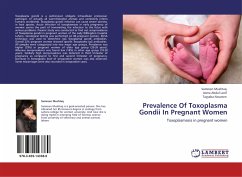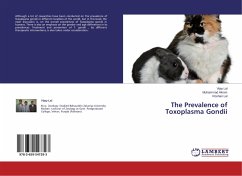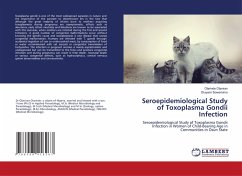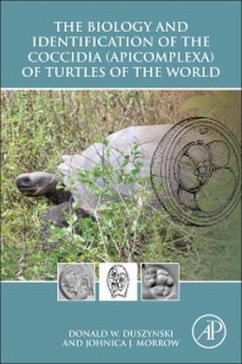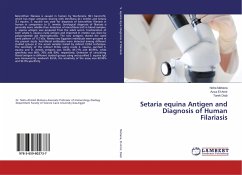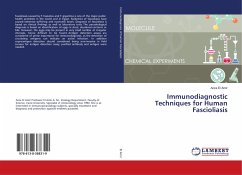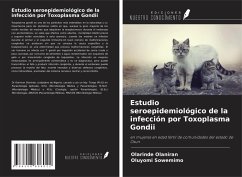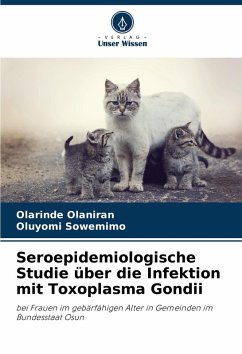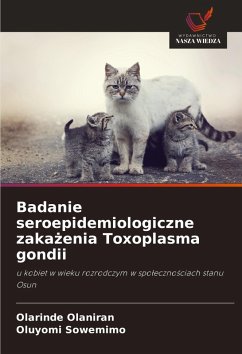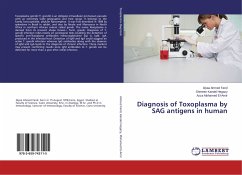
Diagnosis of Toxoplasma by SAG antigens in human
Versandkostenfrei!
Versandfertig in 6-10 Tagen
36,99 €
inkl. MwSt.

PAYBACK Punkte
18 °P sammeln!
Toxoplasma gondii (T. gondii) is an obligate intracellular protozoan parasite with an extremely wide geographic and host range. It belongs to the family Sarcocystidae, phylum Apicomplexa. It was first described in 1908 by splendore in Brazil in rabbit, and also by Nicole and Manceaux in North Africa in northern African rodent called gondi. The name Toxoplasma is derived from its crescent shape (toxon= form, greek). Diagnosis of T. gondii infection relies mainly on serological tests enabling the detection of specific anti-Toxoplama antibodies immunoglobuline (Ig) G, IgM, IgA produced in the inf...
Toxoplasma gondii (T. gondii) is an obligate intracellular protozoan parasite with an extremely wide geographic and host range. It belongs to the family Sarcocystidae, phylum Apicomplexa. It was first described in 1908 by splendore in Brazil in rabbit, and also by Nicole and Manceaux in North Africa in northern African rodent called gondi. The name Toxoplasma is derived from its crescent shape (toxon= form, greek). Diagnosis of T. gondii infection relies mainly on serological tests enabling the detection of specific anti-Toxoplama antibodies immunoglobuline (Ig) G, IgM, IgA produced in the infected host. Detection of IgM and IgA could suggest an active T. gondii infection whereas IgG antibodies along with the absence of IgM and IgA leads to the diagnosis of chronic infection. These markers may present conflicting results since IgM antibodies to T. gondii can be detected for more than a year after initial infection.



